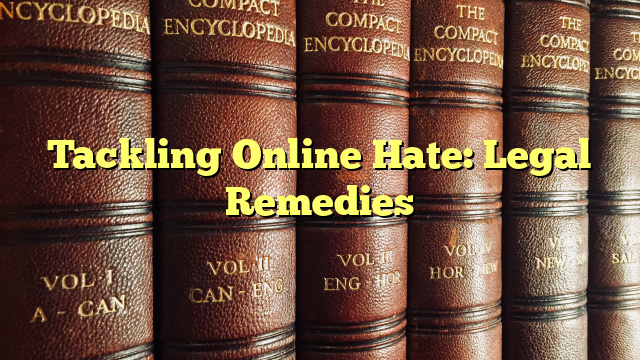Table of Contents
Introduction
Online hate speech has become a pervasive issue in today’s digital age. It not only affects individuals but also has broader societal implications. This article explores the legal remedies available to tackle online hate and provides insights into countering hate speech and creating a culture of acceptance.
Understanding Online Hate
Online hate speech encompasses various forms of discriminatory or offensive language targeted at individuals or groups based on their race, religion, ethnicity, gender, sexual orientation, or other characteristics. It can manifest in social media posts, comments, messages, or online forums.
Legal Framework
Many countries have laws in place to address online hate speech. These laws vary in their scope and enforcement mechanisms. Some countries have specific legislation targeting hate speech, while others rely on existing laws related to defamation, incitement, or harassment.
International Efforts
International organizations, such as the United Nations and the European Union, have also recognized the need to combat online hate speech. They have developed guidelines and initiatives to promote online safety and encourage cooperation among countries in addressing this issue.
National Approaches
Each country adopts its own approach to tackle online hate speech. Some countries prioritize stricter regulations and penalties, while others focus on education and awareness campaigns. It is important to strike a balance between protecting freedom of expression and preventing harm.
Countering Online Hate Speech
Countering online hate speech requires a multi-faceted approach. It involves proactive moderation by online platforms, reporting mechanisms for users to flag offensive content, and cooperation between governments, civil society organizations, and tech companies. Education and digital literacy programs also play a crucial role.
Creating a Culture of Acceptance
To combat online hate speech effectively, it is essential to create a community culture in which hate speech is unacceptable both online and offline. This involves promoting inclusivity, empathy, and respect for diversity. Encouraging open dialogue and fostering positive online interactions can contribute to a more tolerant society.
Overcoming Hate Comments
Individuals who face hate comments online may find it challenging to cope with the negativity. It is important to remember that hate speech is a reflection of the sender’s biases and insecurities. Developing resilience, seeking support from friends and family, and practicing self-care can help overcome the impact of hate comments.
Conclusion
Tackling online hate requires a collective effort from individuals, communities, governments, and online platforms. Legal remedies, combined with education, awareness, and fostering a culture of acceptance, can help counter online hate speech and create a safer and more inclusive digital environment.
How do people deal with online hate?
People deal with online hate in various ways. Some choose to ignore or block the offenders, while others engage in constructive dialogue to challenge the hate speech. Seeking support from friends, family, or online communities can also provide emotional support and guidance

